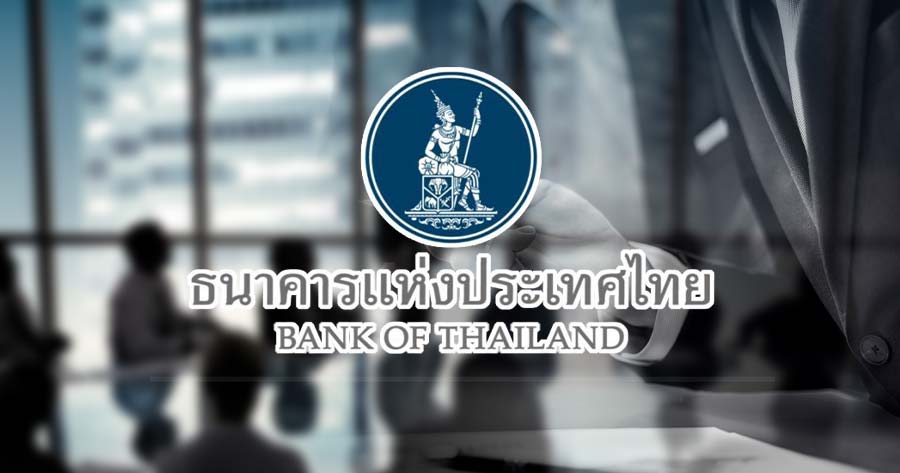On Wednesday, the Bank of Thailand (BOT) opted to keep its key interest rate steady for the fifth consecutive meeting, a decision in line with market expectations.
Despite grappling with a sluggish economy and uncertainties stemming from political developments following the dismissal of the prime minister by a court ruling, the monetary policy committee of the BOT voted 6-1 to retain the one-day repurchase rate at 2.50%, marking the highest rate in over a decade.
According to a Reuters poll, the vast majority of 27 economists anticipated the BOT’s decision to maintain the interest rate unchanged, with only three economists forecasting a quarter-point reduction.
The median projection from the poll suggests that any potential rate cuts are not anticipated until the second quarter of 2025.
Mr. Piti Disyatat, Secretary of the Monetary Policy Committee (MPC), announced the outcome of the meeting on 21 August 2024 as follows.
The Committee voted 6 to 1 to maintain the policy rate at 2.50 percent. One MPC member voted to cut the policy rate by 0.25 percentage point.
The Thai economy is projected to expand as anticipated, driven by tourism and domestic demand, while overall exports are gradually recovering. Inflation is expected to return to the target range by the end of 2024. The majority of the Committee deems that the current policy interest rate is consistent with the economy converging to its potential, as well as conducive to safeguarding macro-financial stability. Most members, therefore, voted to maintain the policy rate at this meeting. However, it is essential to monitor deterioration in credit quality that could impact financial conditions and the economy. One member voted to cut the policy rate by 0.25 percentage point to reflect Thailand’s lower potential growth as a result of structural challenges, and to partly alleviate debt-servicing burden for borrowers.
The Thai economy is expected to grow as anticipated. This has been primarily driven by tourism and domestic demand, despite the expected slowdown in private consumption going forward after a period of strong growth. Meanwhile, merchandise exports and manufacturing production are gradually recovering, as some export categories remain pressured by structural headwinds and declining competitiveness. At the same time, the economy has recovered unevenly across sectors, with labor income in manufacturing and self-employed groups improving more slowly than other groups. Going forward, it is crucial to monitor downside risks from private investment and consumption.
Headline inflation is expected to decline relative to previous assessment, as agricultural prices are likely to remain subdued due to favorable weather conditions boosting production. Core inflation is expected to remain low, partly due to structural factors that moderate the increases in energy and raw food prices compared to the past, as well as heightened competition from imported goods. Medium-term inflation expectations remain consistent with the target, and headline inflation is anticipated to gradually return to the target range by the end of 2024. However, there is a need to monitor potential extensions of government price subsidies.
Overall financial conditions tightened somewhat. Financial markets have been volatile due to market participants’ views on the economic outlook and monetary policy of major economies. The baht appreciated against the U.S. dollar, while Thai government bond yields have declined in line with U.S. government bond yields. Private sector funding costs via commercial banks and corporate bond markets remain relatively stable; outstanding business loans are roughly unchanged. However, loans in the automotive and electronics sectors declined partly due to structural headwinds. At the same time, SME loans contracted due to rising credit risks. Household loans have grown at a slower pace, and with worsening credit quality. This is partly due to deterioration in debt serviceability of vulnerable households as a result of slow income recovery. The Committee deems that it is crucial to closely monitor the impacts of deterioration in credit quality on borrowing costs and overall credit growth, which could disturb economic activities.
The Committee recognizes the challenges SMEs are facing in accessing credit and supports measures to address these issues such as credit guarantee schemes. In addition, the Committee supports the Bank of Thailand’s policy of restructuring existing debt through financial institutions, a targeted measure that partly facilitates the process of household debt deleveraging.
The prevailing monetary policy framework seeks to maintain price stability, support sustainable growth, and preserve financial stability. Most Committee members deem that the policy rate remains consistent with economic growth and inflation outlook, while fostering macro-financial stability in the longer term. The Committee will closely monitor economic and financial developments, as well as the interlinkages between them, and will take into account growth and inflation outlooks in deliberating monetary policy going forward.





